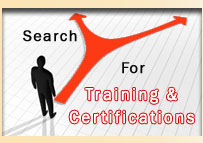 |
|
|
|
Administration Login |
|
|
|
Employer Services |
|
|
|
Training Opportunities |
 |
|
Entrepreneurship |
 |
|
E-CELL RGPV |
 |
|
Alumni |
|
|
|
|
|
|
|
|
 |
|
|
|
How to plan your career |
 |
|
As soon as a young child comes out of school he is confronted with the problem of
choosing which is the most appropriate stream of studies for him to study further
i.e. Humanities, Non-Medical, Medical, Commerce, Arts, Agriculture, Vocational trades
etc. This decision will set limit for his future choice of career. Leaving aside
some common overlapping fields of occupations he is left with the option to make
a choice of his career from the fields of occupations covered under that stream
of education only. Therefore, such choice of stream must be right one so that he
will not have to regret for a wrong choice later on. Thus, this exercise of choice
has assumed very great significance in his life. |
|
Of course, you as a parent will pool your all resources to best guide your child
in an effort to make most suitable choice for him. You will also elicit the help
of his teachers as well as known persons and your relatives. Your combined efforts
may lead to a realistic choice of course which will ultimately take him to enter
an occupation of that field but it is also possible that in absence of most reliable
scientific psychological data about your child, your child may make a decision which
may turn out to be an unrealistic one. If your child is very bright and his targeted
career is below his potentials it is termed as an unrealistic choice. Similarly,
if your child has middle level abilities but his choice of career needs higher level
of abilities such a choice will also be considered an unrealistic one. Hence, your
child needs assistance of an expert to steer him out of such problematic situations
in order to make a right choice. In case, such help is not forthcoming readily you
may follow some of the suggestions listed below to arrive at an appropriate choice
of courses of further studies in order to make him an efficient employable person
in life. |
|
Are you aware about the correct usage of the term career which is being discussed
here? If you already know, it is fine, but some of you may still desire to know
it. Let it be defined first of all as this term is interchanged with terms like
job, occupation, calling and vocation. Let us start with clear understanding of
the term “CAREER”. |
|
Occupational psychology defines career as a ladder of occupations showing your upward
mobility (in certain cases downward mobility). After completion of targeted education
you will join an initial occupation and will go on further through out your working
life passing through one occupation to another. This process is termed as your ‘career’.
|
|
What is Career Planning ? |
|
Career planning is a process of deciding your ideal and an appropriate career based
upon your course of studies, which rightly commensurate with your basic aptitudes,
work preferences; Need to Achieve (n Ach), personality traits and work style based
on your acquired skills, self confidence, attitudes, adjustment level and emotional
intelligence levels etc.
|
|
What does Career Planning Process Constitute? |
|
1. The first step in career planning is to gain a better understanding of your basic
aptitudes, intrinsic interests (work prefereances) , n ‘ach (need achievement),
personality and its traits, self confidence, adjustment status and psychological
hurdles affecting careers. You will benefit by using testing batteries of these
factors. So apply different types of Career Inventories, also known as Tests to
assist you. Hence you have to: Find out your career related aptitudes. Sort out
matching fields of course of future studies, which commensurate with your aptitudes.
On the basis of your aptitudes’ results discover occupations that match your courses
of studies and other competencies. Try to know how you will adjust:- to people working
in such careers; i. related circumstances and demands of your aptitudes to execute
it; ii.work preferences in such occupation; iii.personality traits which facilitate
in such occupation; iv.other competencies needed in your work environments; v.and
visualize whether these adjustments will result in ‘stresses or satisfaction’. Work
out transferable skills as well and accomplishments so that alternative line can
be taken in case of readjustment to changing situations. Know your emotional intelligence
levels as it is an indicator of success in your career.
|
|
2. The second step involves the analysis of collected and compiled occupational
information about occupational options suggested by the results of your test results.
This step will cover:- Working environment and conditions. Training, other qualifications.
Advancement opportunities. Employment trends. Future job outlook. Compensation and
related occupations. Other incentives.
|
|
3. The third step involves decision making. You have to develop a career plan in
consultation with Career Counsellor keeping in mind the data so far collected. Take
the assistance of experienced Career Counsellor.
|
|
4. The fourth step is to execute the career plan by undergoing the course of studies
related to your choice. Take effective steps if any readjustment is warranted to
carry out your Career Planning. There are significant factors which play prominent
role in career development. The details about some of such important factors needs
clarifications to understand their roles properly which are listed to update your
understanding. Role of Aptitudes, Need to Achieve (n ‘Ach), Personality, Self-confidence,
Adjustment, Emotional Intelligence, Work Preferences and Psychological Hurdles in
career development. |
|
|
|
|
 |